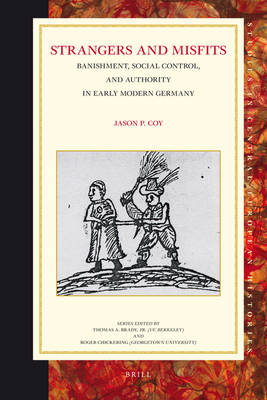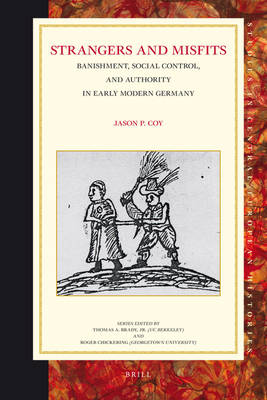
- Afhalen na 1 uur in een winkel met voorraad
- Gratis thuislevering in België vanaf € 30
- Ruim aanbod met 7 miljoen producten
- Afhalen na 1 uur in een winkel met voorraad
- Gratis thuislevering in België vanaf € 30
- Ruim aanbod met 7 miljoen producten
Zoeken
€ 189,45
+ 378 punten
Omschrijving
Banishment was crucial to law enforcement in early modern Europe, as magistrates used expulsion to punish and control thousands of offenders convicted of crimes ranging from adultery to theft. While early modern social control has attracted considerable scholarly attention in recent decades, banishment has been largely neglected. This book examines the role of banishment in sixteenth-century Ulm, an important south German city-state, using the town's experience to uncover how early modern magistrates used expulsion to regulate and reorder society. This investigation sheds new light on the application of authority, the intersection between official disciplinary efforts and customary behavioral norms, and the function of public expulsion in displaying and defending social hierarchies, issues central to our historical understanding of the period.
Specificaties
Betrokkenen
- Auteur(s):
- Uitgeverij:
Inhoud
- Aantal bladzijden:
- 156
- Taal:
- Engels
- Reeks:
- Reeksnummer:
- nr. 47
Eigenschappen
- Productcode (EAN):
- 9789004161740
- Verschijningsdatum:
- 17/09/2008
- Uitvoering:
- Hardcover
- Formaat:
- Genaaid
- Afmetingen:
- 165 mm x 244 mm
- Gewicht:
- 453 g

Alleen bij Standaard Boekhandel
+ 378 punten op je klantenkaart van Standaard Boekhandel
Beoordelingen
We publiceren alleen reviews die voldoen aan de voorwaarden voor reviews. Bekijk onze voorwaarden voor reviews.








